Information on Crystal units and -sockets
On this pages I show some
information, gathered on crystal units and sockets, things I noticed and picked
up.
It is a guessing matter. But as the Paraset was made in England, they will have
used British xtal units at first.
The British used 3,2 mm (= 1/8") pins. As they did on tubes and many connectors.
But later in the war they must have started, using USA xtals with 4 mm pins.
USA dominated xtal manufacturing and USA had a
monopoly on almost all the supplies in xtal rock, dug up in south America
(Brazil I think it was).
It was far easier for the British to change the sockets than the Americans have
to produce to sizes in pins.
Funny thing is: it happened: there were USA-made xtals with 1/8" pins.
Some photos can be enlarged.
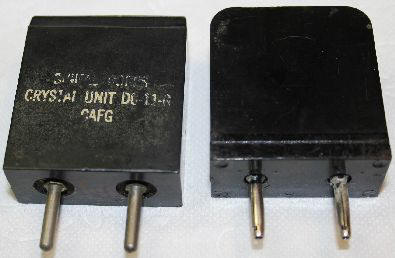 |
Two British looking xtals.
The left one marked "Signal Corps". Both have 1/8" pins. |
| |
|
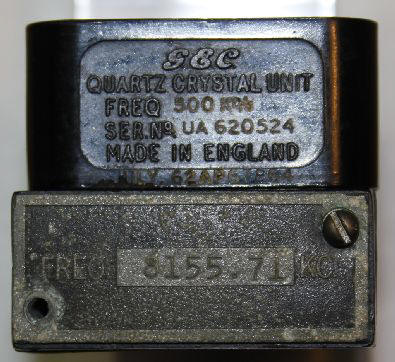 |
Same units, top view. |
| |
|
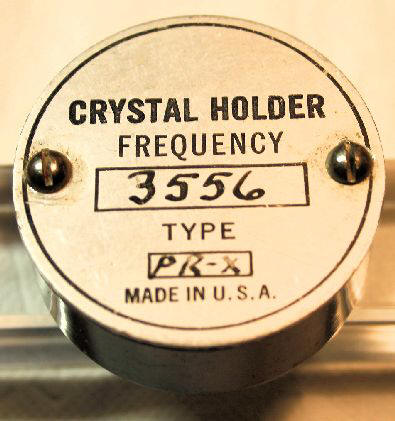 |
Very popular round model.
Like the one Bliley made. |
| |
|
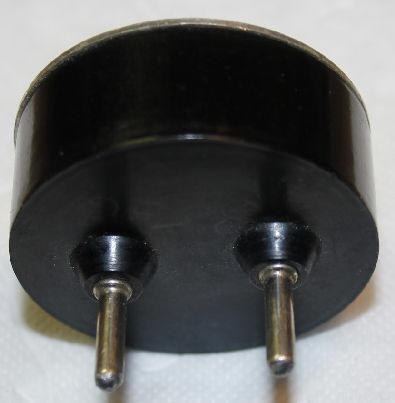 |
with the 1/8" pins. |
| |
|
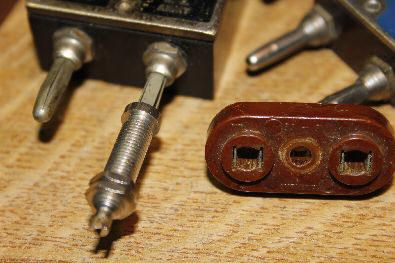 |
Here is an FT171-alike
xtal housing that uses 4 mm pins. These fit in the sockets I call
"Socket B". They also fit in the brown Phenolic xtal sockets, marked
"Amphenol 33-3". |
| |
|
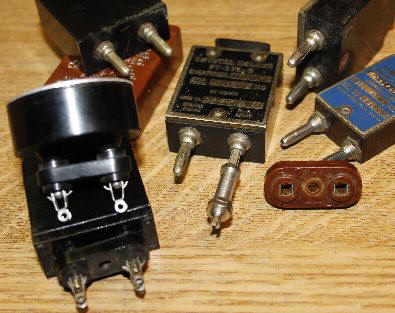 |
A mix of 4 mm and 3,2 mm
(1/8") pins and sockets. |
| |
|
 |
The wooden box Paraset had
the 4 mm sockets. |
| |
|
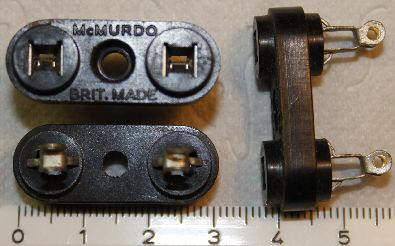 |
These look similar to the
Amphenol sockets. But they are made by McMurdo and fit for 1/8"
pins. Compare them to the Amphenol socket, above. The 0,8 mm
difference is hardly noticeable. |
| |
|
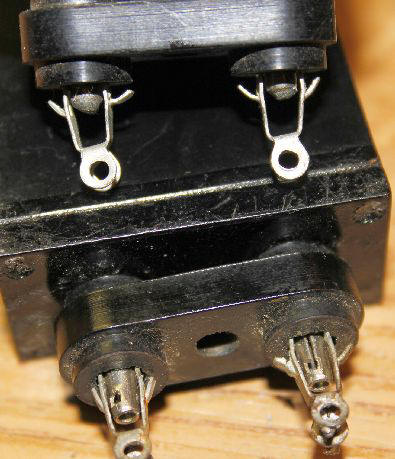 |
British xtal in a British
xtal socket. Perfect fit. |
| |
|
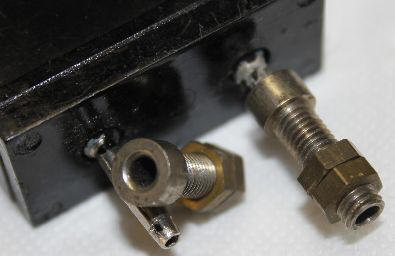 |
These sockets, for 1/8"
pins, were taken from an old rectifier circuit, using old tubes. |
| |
|
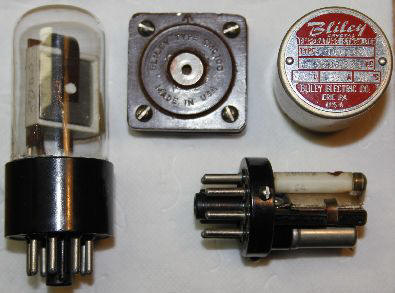 |
Finally, some other
appearances of crystals. Left: octal tube with xtal in it
Centre: a square xtal unit, made by Bliley – USA but marked with
broad arrow
Right: top and bottom: a Bliley xtal oven on octal socket. On top
the heater element, bottom the xtal, kept on 70 degrees. |